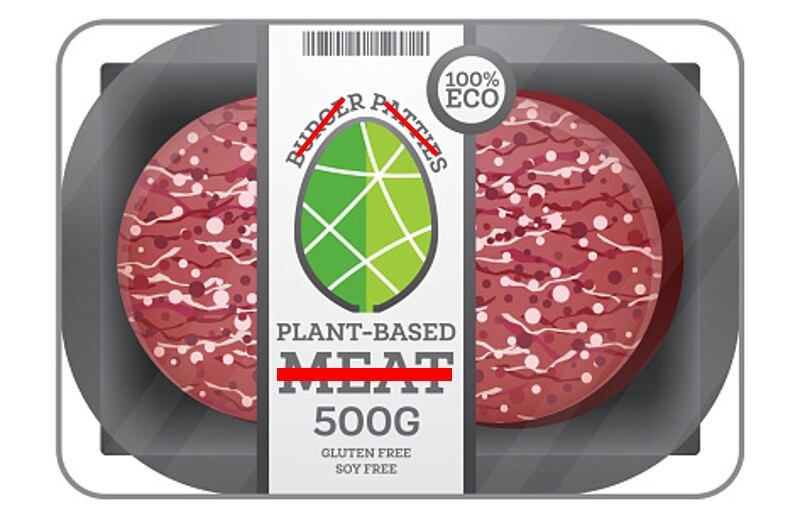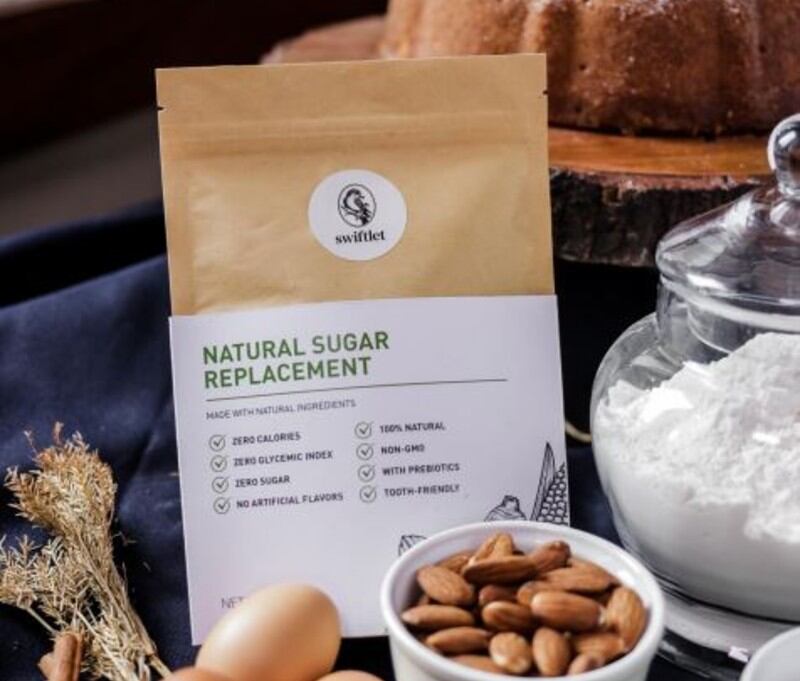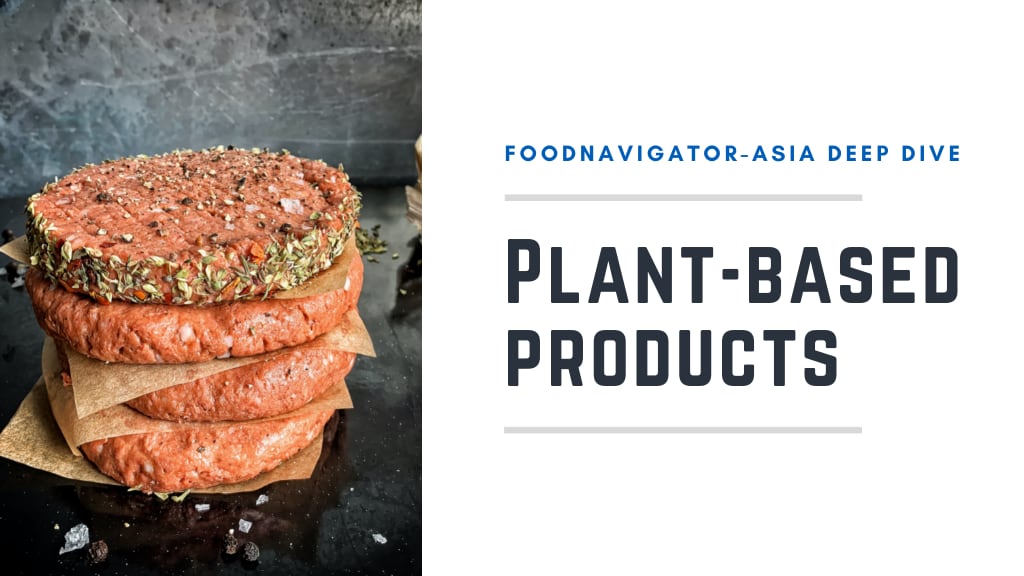Regulations to govern plant-based product labelling have been a major source of debate between the plant-based sector and traditional animal-based agricultural product industries in Australia for several years now, with Minister for Agriculture David Littleproud even hosted roundtable-style discussions since back in 2020.
The Senate Rural and Regional Affairs & Transport Committee’s Inquiry into plant-based product labelling was formally launched last year, and when we last spoke to plant-based sector advocacy agency Food Frontier then, the sentiment was that current food labels for plant-based products have already been found to be fit-for-purpose.
However, the recommendations that have been made by the inquiry have turned out to be less-than-satisfactory for the plant-based sector, with many of these recommending tougher mandatory labelling governance for the sector and the possible ban of using traditional animal-based product labels such as ‘meat’, ‘sausage’ or ‘steak’.
In particular, Recommendation 1 is for the government to form a mandatory regulatory labelling framework in consultation with ‘both the traditional and plant-based protein sectors’, Recommendation 2 wants the placement of plant-based products in supermarkets and online platforms to be reviewed, and Recommendation 5 wants a standard to be developed which would define and restrict the use of meat category brands and imagery to label and market plant-based products.
The plant-based sector’s response to these recommendations has been one of ‘disappointment’, calling out the committee for being not having presented sufficient evidence to support its recommendations.
“The Committee’s recommendations to enact restrictive regulations are unjustified based on the balance of the evidence presented to the Inquiry – the evidence demonstrating current labelling is fit-for-purpose appears in abundance in [its report], yet the Committee’s conclusions are in direct opposition,” Australian alternative protein representative group Alternative Proteins Council (APC) said via a formal statement.
“Australian shoppers clearly understand [prominent labels such as ‘plant-based’, ‘beefless’ or ‘vegetarian’] when they are used with words like ‘sausage’ and ‘burger’, or combined with a meat term, which is why this kind of product labelling is used as best practice in markets around the world.
“Evidence presented to the Inquiry across six public hearings and 226 written demonstrations has already demonstrated that there is no substantive evidence of consumer confusion about plant-based product labelling, as illustrated in data presented by the Australian Competition and Consumer Commission (ACCC), Woolworths and industry bodies; that there is no adverse economic impact to the red meat sector, and there is no market failure arising from current plant-based labelling that warrants [this] regulatory intervention.
“[The committee’s recommendations] have largely ignored evidence showing that Australian consumers understand current labels, [and as a sector we are] disappointed in these recommendations.”
Food Frontier CEO Thomas King added that the enforcement of such restrictive regulations would have an impact on a young, emerging sector such as plant-based.
“Enforcing restrictive regulation on an emerging industry as this report calls for, especially in light of no credible and substantive evidence to justify it, is a threat to the Australian food industry’s competitiveness in a changing global market,” he said.
“[This is particularly so in a time when] protein diversification is necessary to feed the world’s growing population, and support new protein industries alongside traditional ones.
“This matter has now been considered by government on four separate occasions – with the most consistent recommendation being either no action required, or at minimum introducing voluntary guidelines – so [to] best serve Australian consumers, any decisions [should] continue to be based on evidence and avoid stifling innovation and consumer choice.”
On the other side of the coin, the traditional meat sector has shown overwhelming support for the recommendations, with the Red Meat Advisory Council (RMAC) in particular welcoming these as a ‘common-sense approach’.
“It is unacceptable that highly processed plant-based protein made from imported ingredients are allowed to be labelled as Australian meat,” RMAC Independent Chair John McKillop told us.
“[These recommendations] will go a long way in helping to restore truth in labelling for Australian consumers, while ensuring animal and manufactured plant-based protein industries can compete on a level playing field.”
Despite the plant-based sector’s fervent statements that the recommendations have not been made with the backing of sufficient evidence, McKillop claimed that this decision has made it clear that a regulatory framework is required.
“The recommendations vindicate our long-held view that regulated standards are required to prohibit plant-based product manufacturers from using traditional animal protein names like ‘beef’, or ‘lamb’, or using livestock images on their packaging or marketing,” he said.
“[This has] also put the debate on consumer confusion to bed, concluding that Australian families are being deceived by misleading labels and descriptions used by plant-based companies [and shown it is] clear that Australia’s regulatory framework needs urgent strengthening [to stop] the practice of denigrating meat products through misleading advertising.”
More evidence against recommendations
That said, more evidence appears to be emerging against the senate’s recommendations – earlier this month, the University of Sydney’s Institute for Sustainable Futures published a new study highlighting how Australian consumers are ‘not confused’ over plant-based product labelling and consumption.
Conducted on over 1,000 Australian consumers across all local states and territories, the institute presented participants with currently available supermarket products and asked whether these were plant-based or animal-based products, or if they were unsure.
The results of the study showed that only 4% of consumers surveyed had ever wrongly bought a plant-based product believing it to be an animal-based product, with 67% of these saying this was due to them not reading the product label as they were in a hurry or distracted.
In contrast, plant-based consumers were far more likely to buy products with animal content believing it to be plant-based, with this happening to 41% of consumers.
More concerns looming on the horizon
Although the plant-based sector would undoubtedly be the most severely impacted if this round of recommendations were enforced, concerns also lie ahead for the cultured meat sector, as Recommendation 3 by the inquiry is for the government to establish a mandatory regulatory framework for this ‘for the introduction of those products onto the Australian market’.
“The committee sees significant issues arising with the prospect of cultured, lab-grown meat entering the Australian market [and that this] new development resulting in further consumer confusion,” said the Senate Inquiry committee via its report.
“Existing labelling and marketing practices are likely to enable further appropriation of meat category branding used by the traditional protein sector [and] the failure to prepare for this likely future could have dire outcomes for Australia’s livestock sector, with impacts on the livelihoods of people throughout the entire supply chain,”
From the industry, Seafood Industry Australia in particular has called for the government to ‘get ahead’ of the cultured meat and seafood sector ‘before it actually starts coming into the market’.
This recommendation has raised the ire not just of the alternative proteins sector, but other politicians as well.
“[How] can a regulatory instrument be suitably designed for a technology that is still in its infancy?” said Senator Peter Whish-Wilson from the Australian Greens party.
“This inquiry has failed in any measure to make a coherent case for this recommendation, and it illustrates the over-reach and effective scare-mongering inherent in the motivations of the inquiry. [We also] significantly question the validity [of the inquiry] as an appropriate use of public service time, resource and money.”





